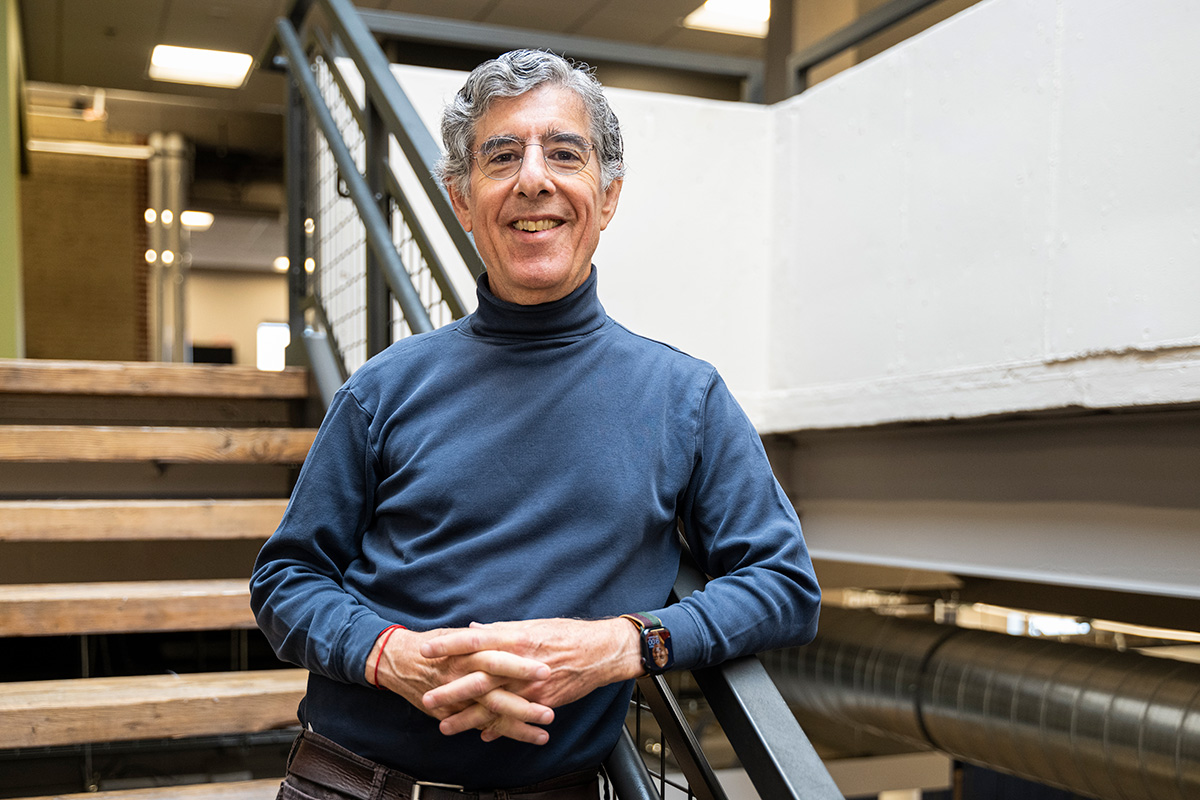Stimulating the Brain to Stop Suicide
UW researchers aim to enhance emotional regulation and cognitive flexibility.

Davidson: “This kind of work has never been done before, and the world really needs it.” Jeff Miller
According to the World Health Organization, more than 700,000 people die by suicide every year, with a high percentage of deaths among teens and young adults. But a team of UW–Madison researchers is hoping to bring those numbers down. Led by the Center for Healthy Minds and the Wisconsin Institute for Sleep and Consciousness (WISC), the team is exploring whether a combination of targeted brain stimulation and meditation can improve well-being and help prevent suicides.
UW–Madison researchers will investigate how complementary neuroscience and meditation-based interventions could target and repair the areas of the brain that control emotional regulation and cognitive flexibility — the ability to multitask and adapt. After an initial assessment, participants will undergo a four-week test period of hybrid interventions, including meditation training and a highly novel, targeted brain stimulation during sleep. This stimulation (transcranial electrical stimulation with temporal interference) directs targeted frequencies from noninvasive sensors placed on the head. Participants are expected to be unaware of the stimulation.
“This approach of combining meditation during wakefulness with neurostimulation during sleep has never been tried before. But there are strong reasons to expect that they will synergistically interact, and we expect the combined impact will be greater than the sum of its parts,” says Richard Davidson, director of the Center for Healthy Minds, who led the study with WISC director Giulio Tononi.
Following each phase of interventions, participants will be reassessed for well-being and suicidality. Ultimately, the team envisions a future where personalized interventions enable individuals to flourish even amid challenging circumstances.
“This kind of work has never been done before, and the world really needs it,” says Davidson.
Published in the Spring 2024 issue



Comments
Wally Graeber March 15, 2024
Thank you for featuring this crucial, novel, and inspiring study for more of us to learn about.